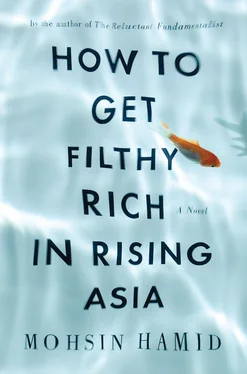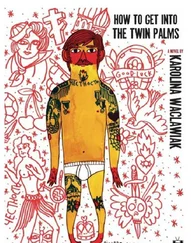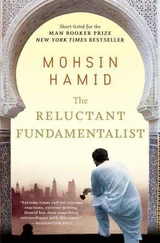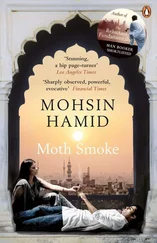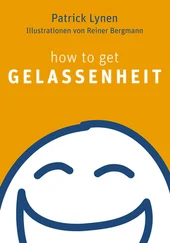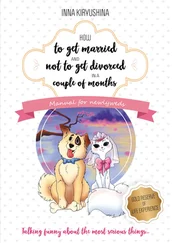Hers is not by nature a temperament sympathetic to nostalgia, in fact the opposite. She refuses to visit the seaside metropolis where she spent so many productive years. Nor does she seek to scrape together the funds to retain, on a temporary basis, a new assistant who could translate and facilitate for her, making possible a final coda to her much-loved trips abroad. In her mind, her return to the region of her birth marked a decisive break from days gone recently by.
And yet, whether because of her advancing age or the strange echoes this city sustains through its associations with her childhood, she finds herself pulled into frequent and unexpected turns of thought, dampness on a fingertip used to wipe dew off a glass of water reminding her of a gentle and now-dead photographer, say, or a sudden breeze felt on her balcony conjuring up a beach party long ago. Present and alert in this moment, she, unaccustomedly, might well be lost to reverie in the next.
You reencounter each other at a pharmacy, a crowded micro-warehouse stacked with pallets not much bigger than matchboxes, mostly white, bearing text too minute to be legible, even while squinting, and, on occasion, iridescent seals of hologrammed authenticity that shimmer like fish in the light. You are progressing incrementally to the counter, buffeted by those who push forward out of line, reliant on strangers who acknowledge you and are good enough to wait. Ahead you see a figure turn after paying for her purchase, a figure you think you recognize, and you are seized by a powerful emotion. This emotion is akin to panic, and indeed you consider shoving your prescription back into your pocket and making for the exit.
But you stand your ground. As the figure approaches, she frowns.
“Is that you?” she asks, not for the first time in her life.
You lean on your cane and scrutinize the wizened woman before you.
“Yes,” you say.
Neither of you speaks. Slowly, she shakes her head. She rests her hand on yours, her skin smooth and cool against your knuckles.
“Do I look as old as you do?” she asks.
“No,” you say.
“I thought you were an honest boy.”
You smile. “Not always.”
“Let’s find a place to sit down.”
Near the pharmacy is a coffee shop, evidently part of a chain, and possessed of a franchise’s artificial quirkiness, its seemingly mismatched sofas and chairs and tables corresponding to a precise and determined scheme set forth in the experience section of a corporate brand guidelines binder. Its furniture and fittings evoke decades gone by. Its music, its menu, and, saliently, its prices are utterly contemporary. For affluent younger customers, the effect might be pleasant, transporting them from this street in this neighborhood to a virtual realm inhabited by people very much like themselves across rising Asia, or even across the planet. But for you, who remembers that a fruit seller occupied this particular property until a few months ago, the faux wornness of this establishment would be disorienting. Normally. Today you do not notice.
Over tea you and the pretty girl discuss what ex-lovers meeting again after half a lifetime usually discuss, namely your health, the arcs of your careers, shared memories, yes, this often while laughing, as well as your present whereabouts, and, in passing, so tangentially as merely to be grazed, whether you are currently single. Your waiter is courteous, seeing a pair of elderly people leaning forward, engrossed in conversation, which is, of course, what you see also, except that it is not all you see, for you see too, overlaid on the pretty girl’s diminished form, or perhaps rather flickering inside it, a taller, stronger, more zestful entity, happy in this moment, and able yet to dance in the moistness of an eye.
“How strange to be using the word retired,” the pretty girl says as she finishes her tea.
“We’re unemployed,” you correct her. “Sounds more alive than retired.”
“Are you looking for work?”
“No.”
“Retired, then.”
You pour two glasses of water.
“You should interview me,” you say, passing her hers. “And I’ll interview you. Then we’ll be unemployed.”
She takes a sip. “Only if neither of us gets hired.”
You call her the next day, and in the weeks that follow you spend time together, going to a restaurant for dinner one evening, on another converging in a park for a slow-moving stroll. You explore the city’s main colonial-era museum and its pungently aromatic zoo, attractions you last visited when your son was a schoolboy. At the zoo you are surprised by how inexpensive tickets are, and further by the size of the facility, which seems bigger than you recall, though you had expected the opposite to be the case. The pretty girl marvels at the aviary, you at hippopotamuses slipping daintily into a mud pool from the grassy banks of their enclosure. She draws to your attention the large number of young men who are here, their accents and dialects often hailing from remote districts. They call to the animals in amusement and wonder, or sit in clusters on plentiful benches, taking advantage of the shade. The zoo has signs listing the daily dietary intake of its most prominent residents, and occasionally a literate visitor is to be heard reading to his fellows the prodigious quantities of food required to maintain such and such beast.
In the pretty girl’s company, you give up a small degree of the physical isolation you had imposed upon yourself, venturing out into the city a little more, having, through the presence of a friend, greater reason to do so than you did before, and also, when part of a group of two people, being less afraid than when alone. Yes, the city remains intermittently perilous, in, for example, the slashing thrusts of its vehicles, the ferocious extremes of its temperatures, and the antibiotic resistance of its microorganisms, not to mention the forcefulness of its human predators, and particularly at your age you must stay on your guard. But you savor your tentative, shared reentry, and think that the city may not be quite so fearsome, that indeed, when gazed upon with the good humor that can come from companionship, significant swaths of it appear mostly navigable, at least for the present, while a measure of bodily vitality endures.
At times the pretty girl feels shocked looking at you, the shock of being mortal, of seeing you as a cane-propped mirror, of your frail and gaunt form’s inescapable contemporaneity to her own. These impressions tend to occur in the first moments of your encounters, when an absence of a few days has run itself like a soft cloth over her short-term visual memory. But quickly other data begin to accrue, likely starting with your eyes and your mouth, her image of you resolving itself into something different, something timeless, or if not entirely timeless, still beautiful, handsome to behold. She sees in the cock of your head your awareness of the world around you, in your hands your armored gentleness, in your chin your temper. She sees you as a boy and as a man. She sees how you diminish her solitude, and, more meaningfully, she sees you seeing, which sparks in her that oddest of desires an I can have for a you, the desire that you be less lonely.
One night, after a movie in a theater that astonishes you with the size of its screen and the quality of its sound and the costliness of its popcorn, and also with the suddenness of the fight that breaks out among teenagers outside, in which you are knocked to the ground by mistake as a member of the crowd backs up, and you receive a bad bruise on your thigh, but nothing is broken, thank goodness, the pretty girl invites you over to her place. Her tenants grin as you enter, clearly delighted to see that their landlady has a gentleman caller, and with knowing glances make themselves scarce.
Читать дальше
